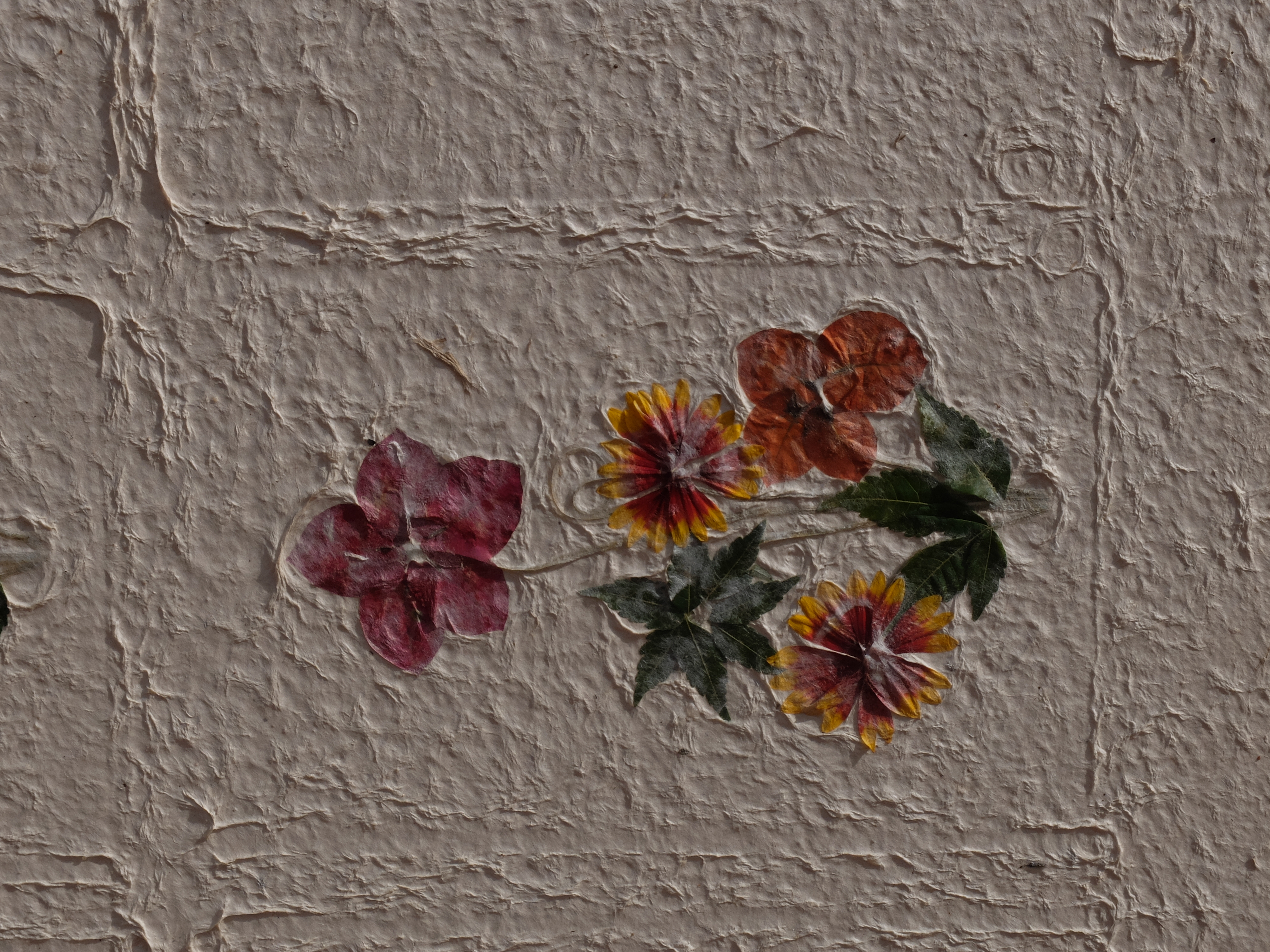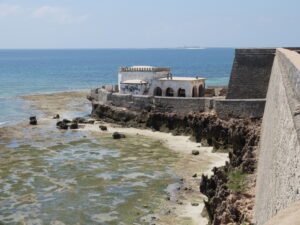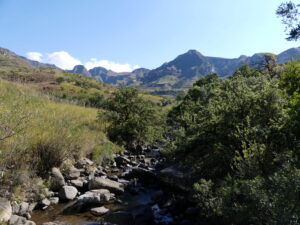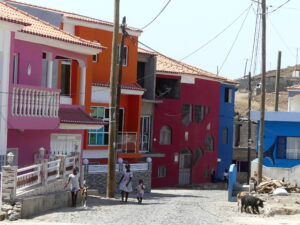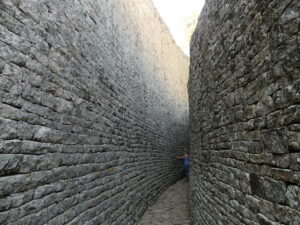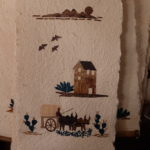
Hundreds of years ago the Antemoro people of southern Madagascar – Arabic in origin – began to make a form of papyrus paper decorated with real flowers. The art was revived by the French in the 20th century and thrives today in the town of Ambalavao.
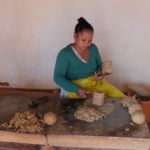
Creating the paper product is anything but delicate however. After ripping the bark from branches of a special tree in the area and bundling it into tight sheathes, the local artisans boil it furiously for four hours so it turns into a wet sinewy lump . Then the pounding begins, as workers continually smash mallets on the lump to turn it into a mash.
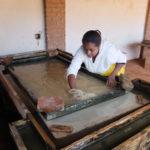
Strong hands then form the mash into balls that weigh a half kilo. The ball is dissolved in water and spread thinly by hand over a cotton foundation in a large form filled with water. The water is drained rapidly from the form and let to settle. The residue is then partitioned into smaller sections for its destined use.
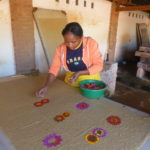
And, in the only somewhat delicate stage, it is adorned while wet with either petals torn from flowers or other natural elements like bark – each of which is set in the paper by applying the gluey residual liquid.

Dried in the torrid sun, the tough papyrus pieces are popped off the frame when ready – in the form of note cards, decorative sacks, sheets for photo albums, and so on. Each is a hardy result of a surprisingly indelicate process.
Also, for more pictures from Madagascar, CLICK HERE to view the slideshow at the end of the itinerary page.)


